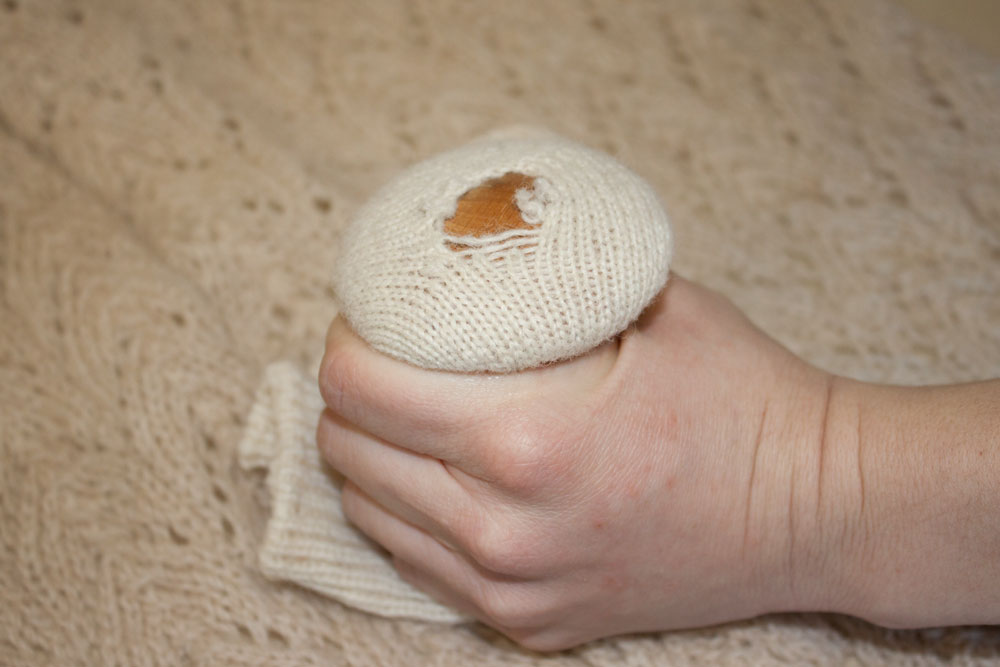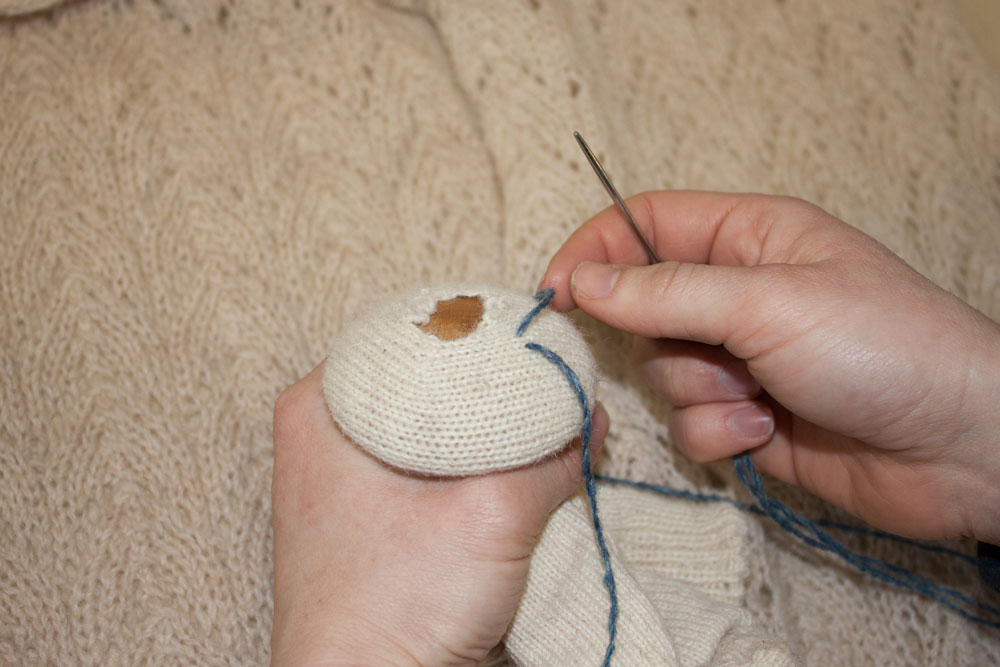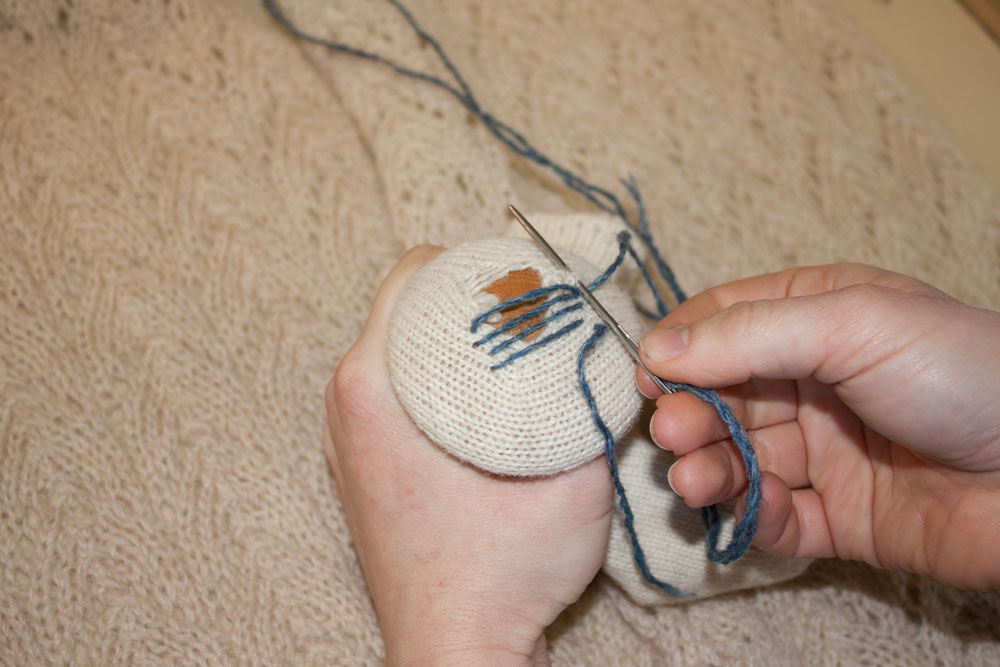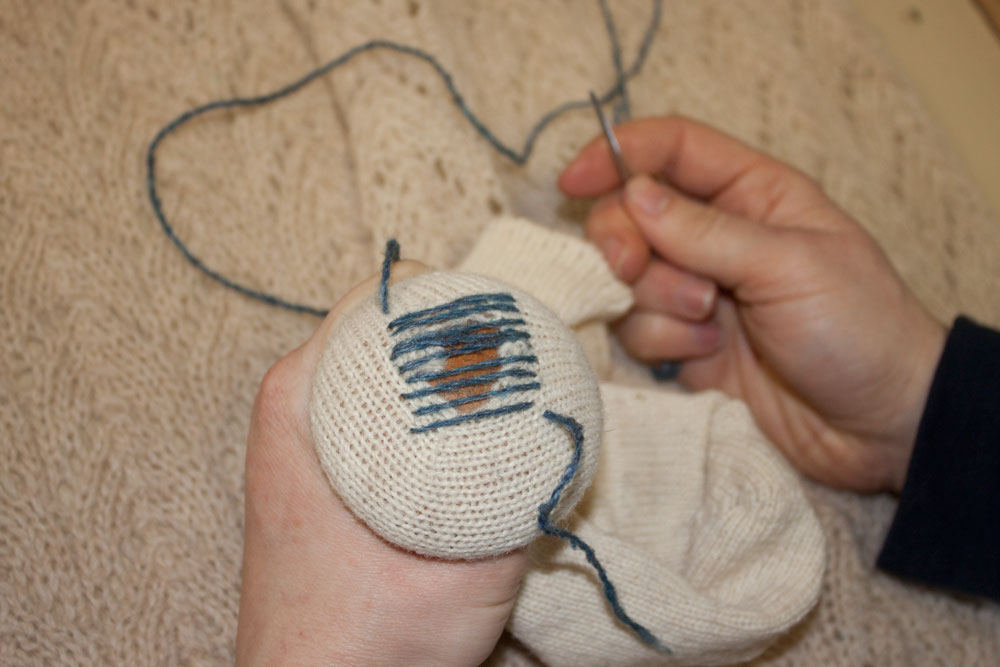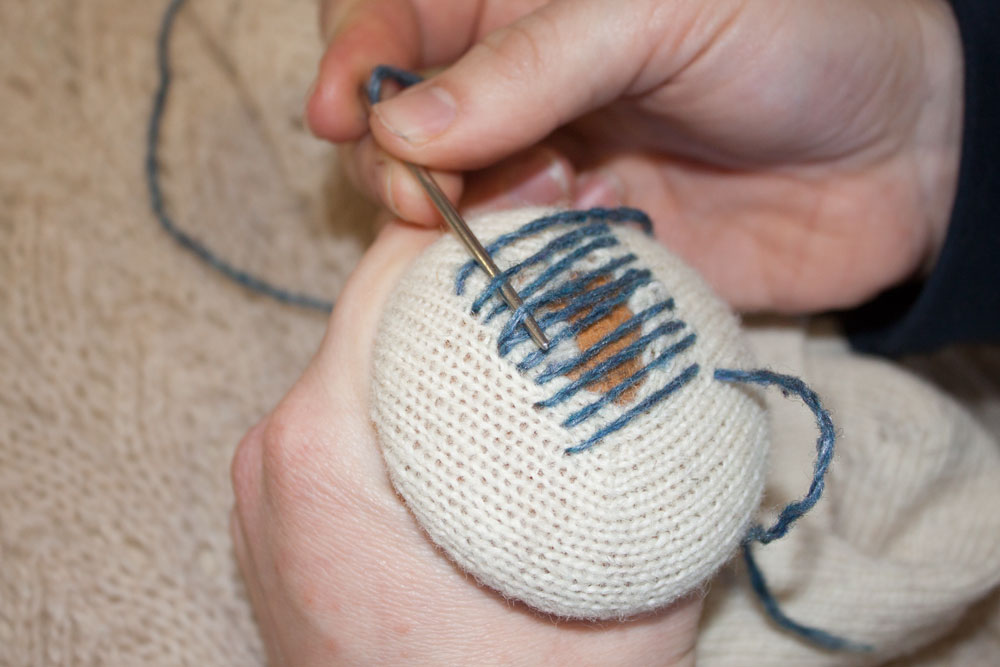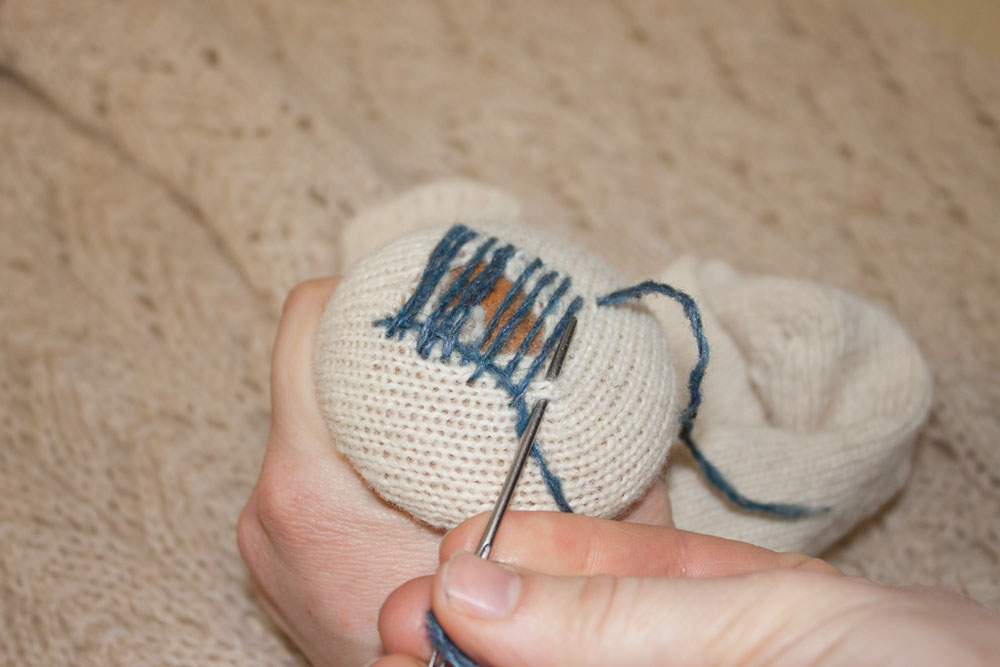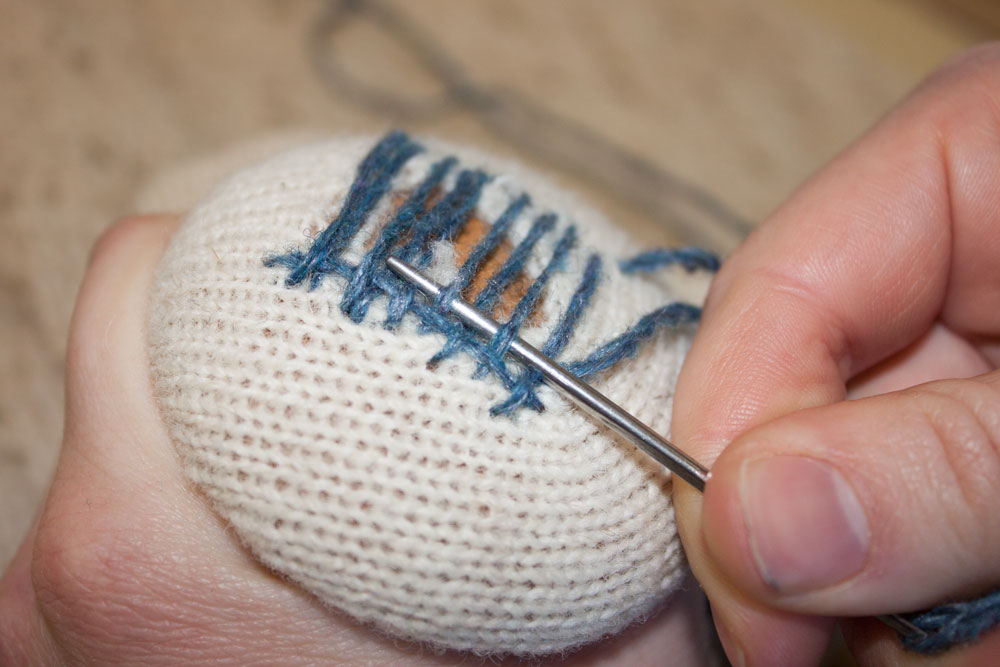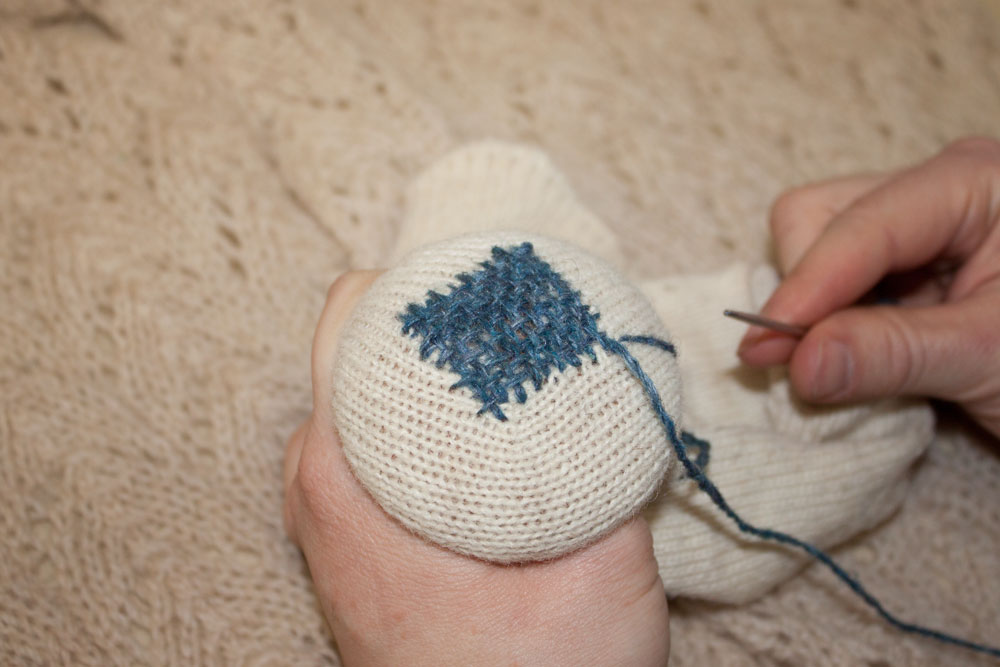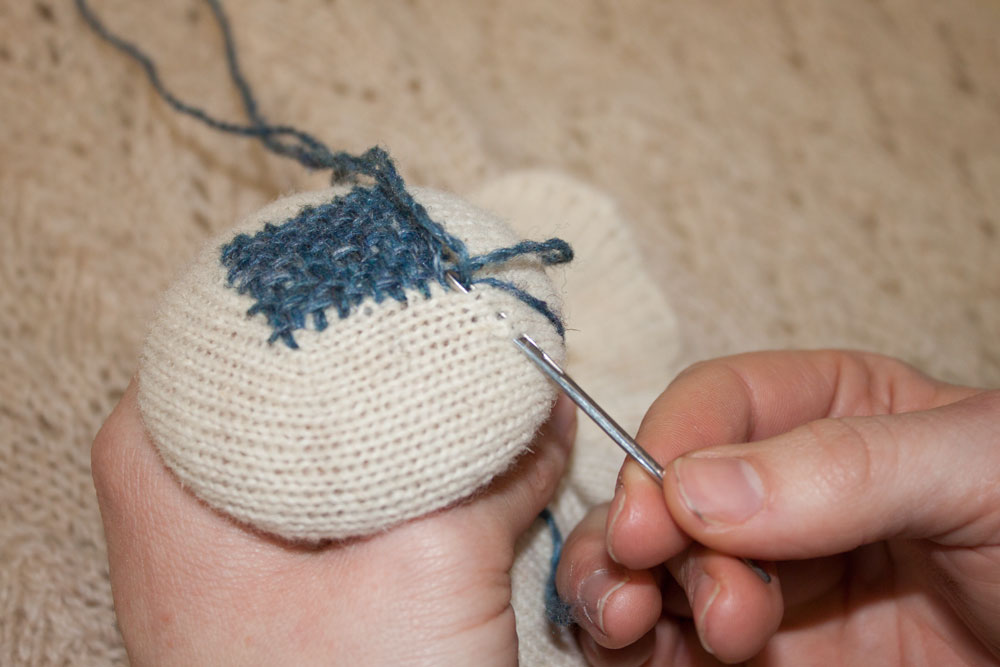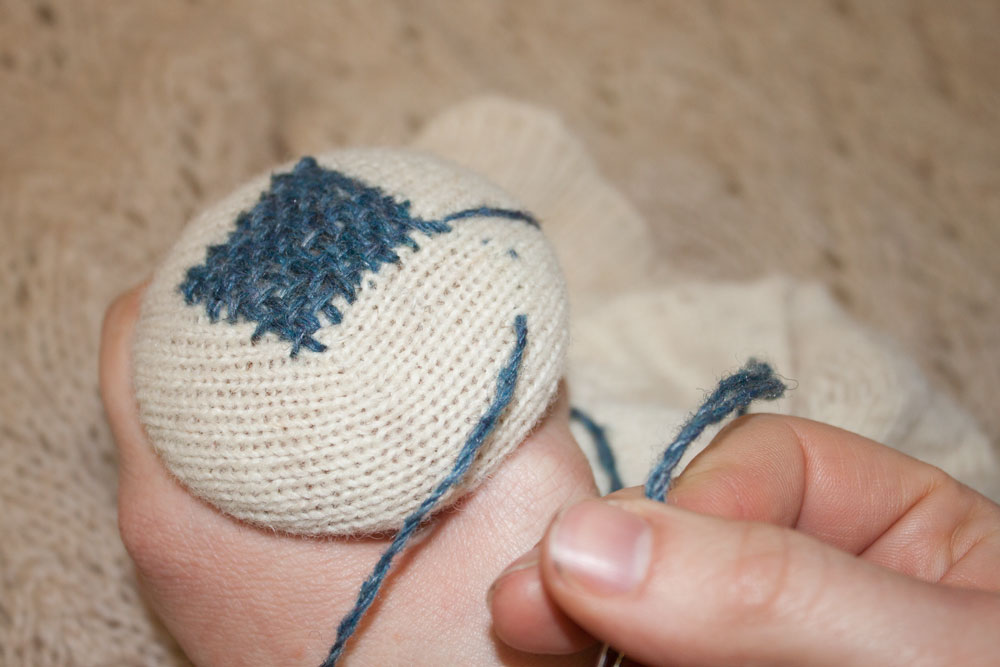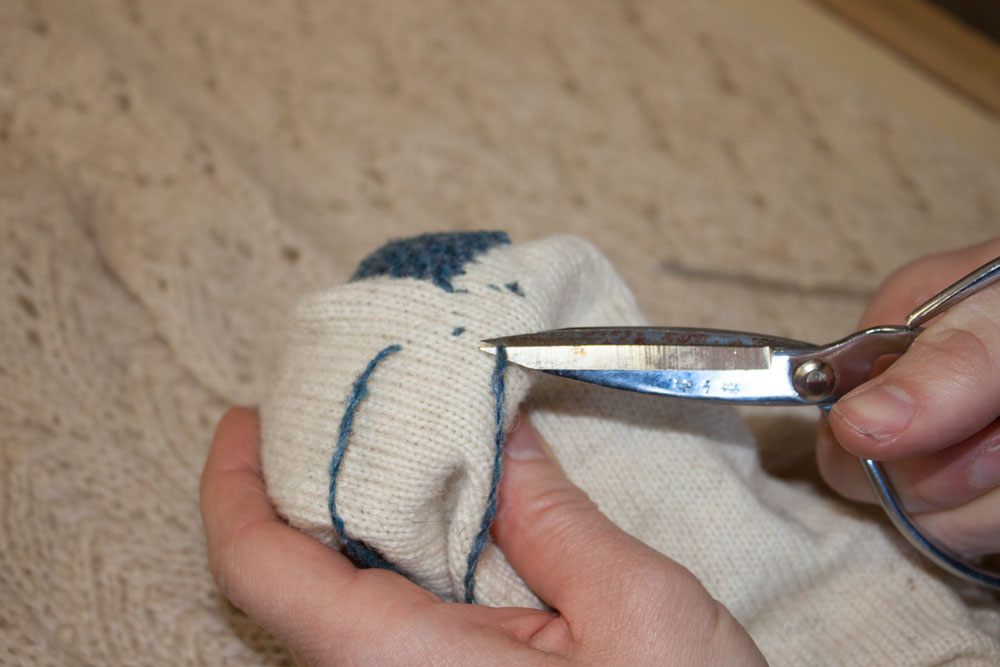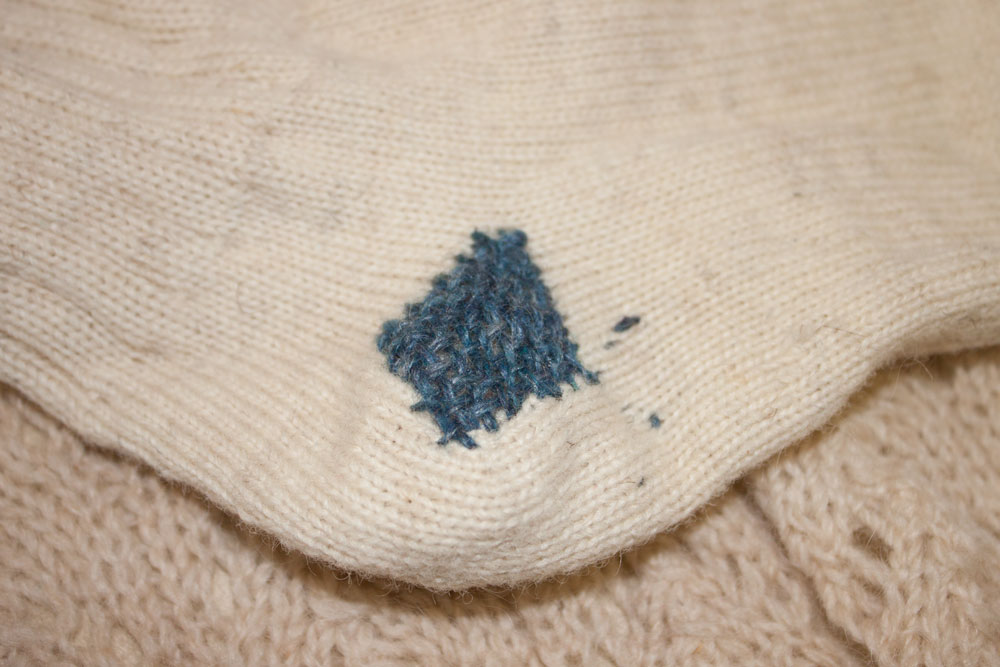How to Darn a Sock Using a Woven Repair
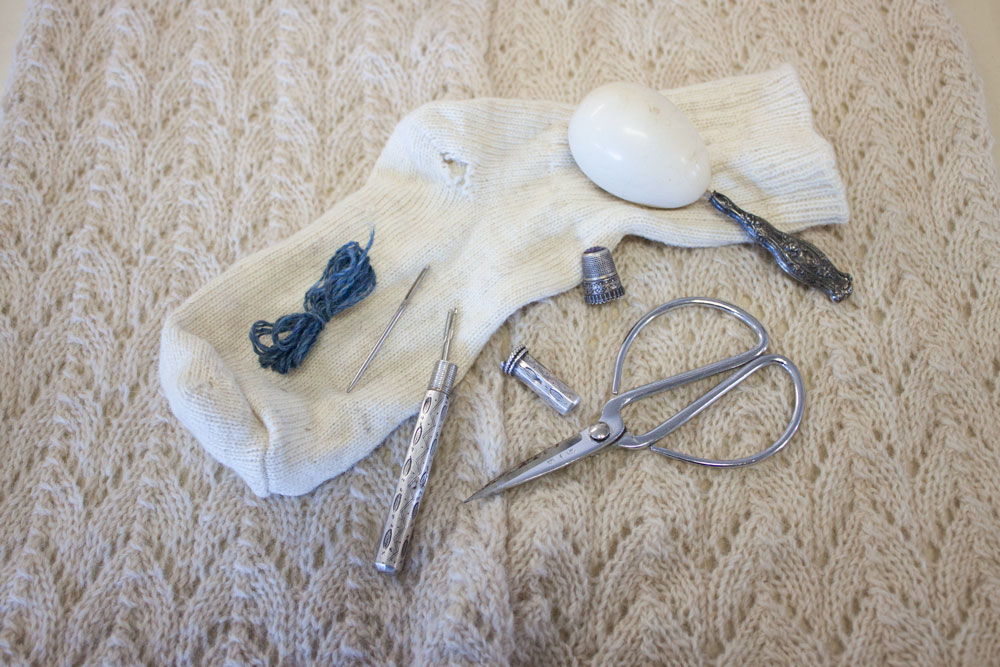 Woven repair for small holes in socks, woven fabrics, and knit fabrics:
Woven repair for small holes in socks, woven fabrics, and knit fabrics:
Woven repair is a very simple and quick technique. All you need is a darning needle, a scrap of yarn, something to hold your repair item taught against, and about 10 minutes time. For this reason, not only is it the easiest repair method for wool socks, it is the go-to method for fixing woven blankets and inconspicuous holes in sweaters. You can match your repair yarn to your piece, or you can choose a contrasting colour to highlight a lovingly repaired well-used item!
To get started…
Gather the items you will need – a darning needle, some yarn, and something to hold your sock taught over.
Darning needles are large needles with a blunt point and an eye large enough to use with yarn. If you don’t already own one, you can buy one at almost any drug store or craft store for under $5.00 (sometimes they come as part of a package of repair needles and they can be either plastic or metal).
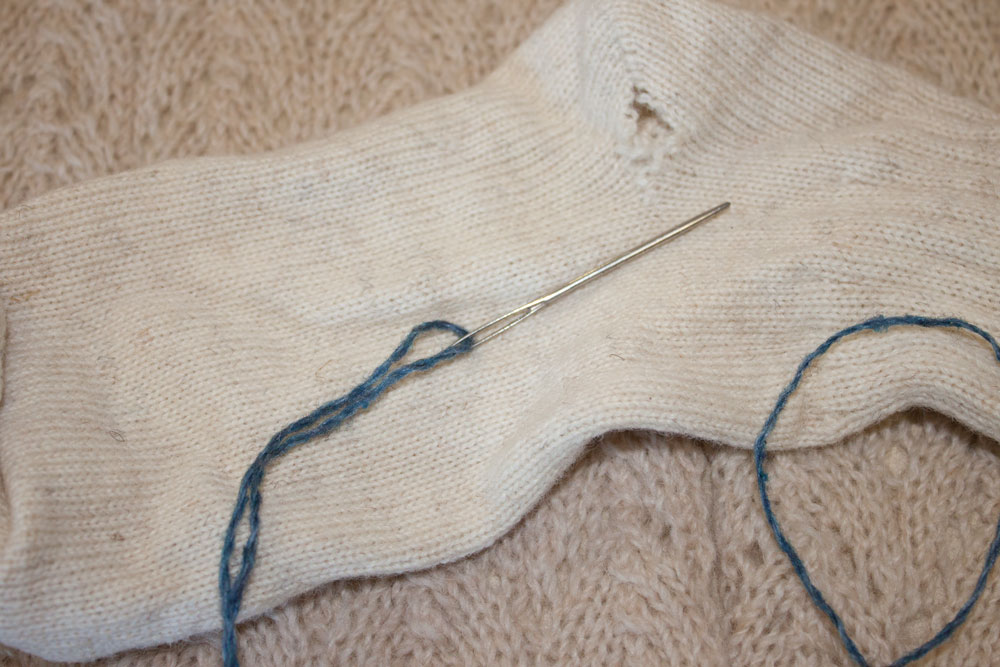
You can use any scrap of yarn to darn your socks, though the repair will last longer and be more comfortable if you choose something similar in weight to the yarn that your socks are made out of. If you don’t have any scraps of yarn around, you should probably take up knitting – it is a sure way to guarantee a stash of yarn in the closet at all times. Alternatively, if you have many pairs of socks to fix up, you can sacrifice one and unravel the yarn from it to use on your other socks, or, you can use a thick dental floss in a pinch (get the unflavoured kind because the flavoured stuff is sticky).
Traditionally, folks use what is a called a “darning egg” – an egg shaped piece of wood or other hard material – to stretch the sock over. The old darning eggs range from very fancy (perhaps an indicator of how important the darning egg was to daily life) to quite plain, but the function is the same. If you don’t have a darning egg, you can use a lightbulb or an empty bottle instead.
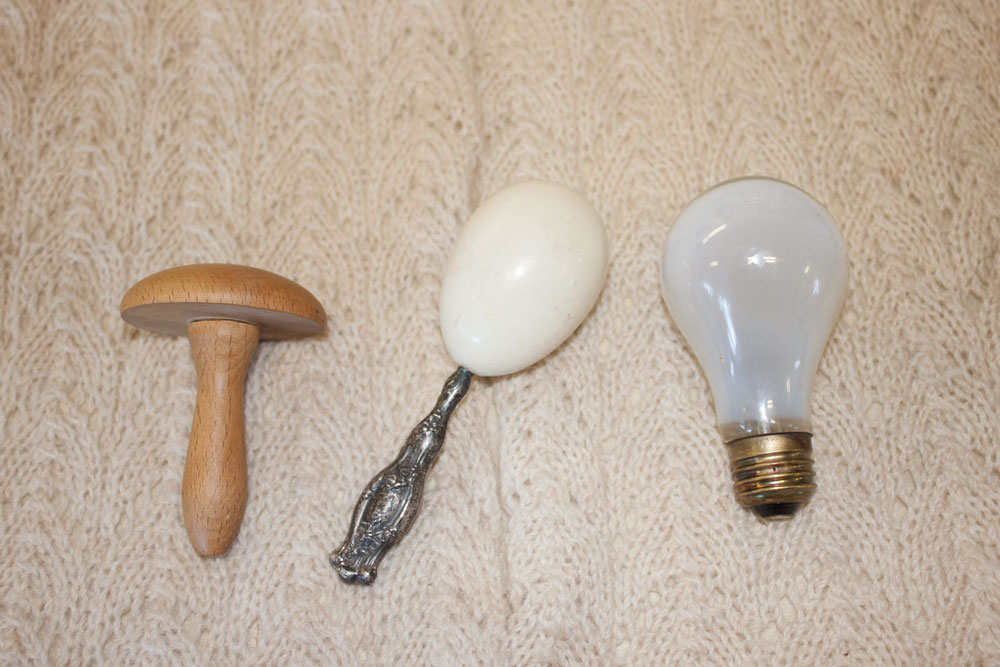
Tip
It is definitely better to darn your socks at the first sign of damage when the hole is small rather than waiting for there to be a huge hole that needs repairing….. huge holes are a bit more challenging to manage.
Darning your sock…
Custom Woolen Mills, Canada
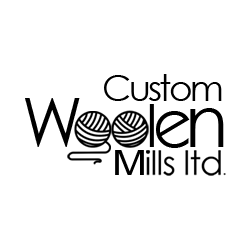
PROFILE
Custom Woolen Mills is a small, family owned and operated woolen mill located near Carstairs, Alberta, Canada. Using turn-of-the-century industrial revolution machinery, they have been providing quality woolen and exotic fibre products to their loyal customers for over 35 years.

